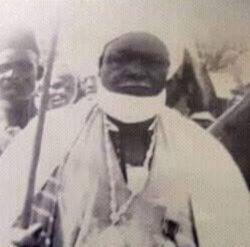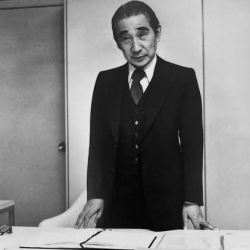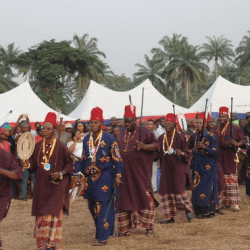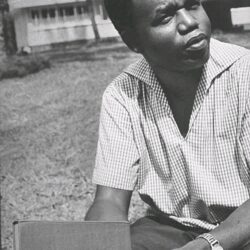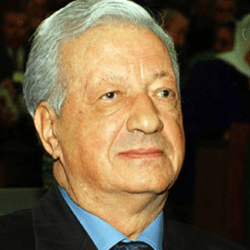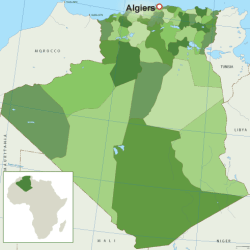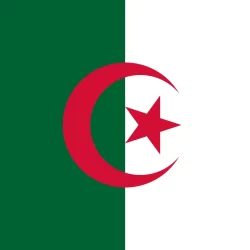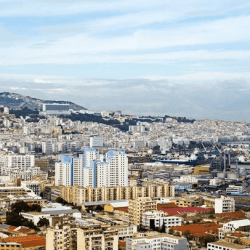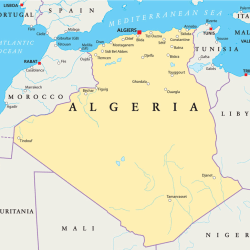Houari Boumediene, born Mohamed Boukhrouba on August 23, 1932, in the village of Beni Adi, near Guelma, was Algeria’s second president, ruling from June 19, 1965, until his death on December 27, 1978. He is remembered as one of the most influential Arab and African leaders of the 20th century—a revolutionary fighter, a builder of modern Algeria, and a leading voice of the Non-Aligned Movement.
Early Life and Education
Houari Boumediene grew up in a modest rural family. He entered a kuttab (Quranic school) at the age of four, where he memorized the Quran and began teaching children in his village. His thirst for knowledge led him to the Almabert School in Guelma and later to the Kettaniyya School in Constantine, a hub of the Association of Algerian Muslim Scholars.
His education blended traditional Islamic studies with French colonial schooling. By the late 1940s, he had joined the Algerian People’s Party (PPA), an early nationalist movement. Refusing to serve in the French army, Boumediene fled to Tunisia in 1949 and enrolled at the University of Ez-Zitouna. Soon after, he moved to Cairo, where he studied at Al-Azhar University, immersing himself in both Islamic scholarship and revolutionary politics.
Role in the Algerian War of Independence
With the outbreak of the Algerian Revolution on November 1, 1954, Boumediene returned to fight. He joined the National Liberation Army (ALN) and quickly rose through the ranks:
- 1957–1960: Commander of the Oran region.
- 1960–1962: Chief of Staff of the ALN.
His military discipline, strategic thinking, and charisma made him one of the revolution’s most important commanders. After independence in 1962, Boumediene was appointed Minister of Defense and later Deputy Prime Minister.
Rise to Power
By the mid-1960s, Algeria was facing political instability under President Ahmed Ben Bella. On June 19, 1965, Boumediene led a bloodless coup d’état, removing Ben Bella and establishing the Revolutionary Council with himself as chairman.
In 1975, he was officially elected President of Algeria, cementing his leadership and launching a new era of governance.
Domestic Policies and Nation-Building
Boumediene’s presidency was marked by ambitious economic, social, and cultural reforms designed to consolidate Algeria’s independence and modernize its economy.
Agriculture and Industry
He pursued a policy of agrarian reform, redistributing land to peasants, while simultaneously building hundreds of heavy industries with support from both the socialist bloc and Western experts.
Energy Nationalization
One of his most historic decisions was the nationalization of Algeria’s hydrocarbons in February 1971. This bold move gave Algeria full control over its oil and gas resources, boosting national revenues and reducing foreign dependence.
Education and State-Building
Boumediene also invested heavily in education, culture, and state institutions. He expanded universities, promoted Arabic as the national language, and drafted a National Charter that served as the ideological foundation of post-colonial Algeria.
In 1977, Algeria held its first election for the National People’s Assembly, a milestone in institutional development.
Foreign Policy and Global Influence
Boumediene was not only a national leader but also a global statesman. He positioned Algeria as a champion of the Third World, playing a central role in the Non-Aligned Movement.
- In 1973, Algiers hosted the Afro-Asian Conference, where Boumediene famously called for a New International Economic Order at the United Nations, challenging global inequalities between developed and developing nations.
- He strongly supported the Palestinian cause and the Sahrawi struggle for self-determination, opposing the 1975 tripartite deal between Morocco, Spain, and Mauritania over Western Sahara.
- Algeria under Boumediene played an active role in the 1973 October War, sending troops and resources to support Egypt against Israel. Egyptian President Anwar Sadat later credited Algeria’s support, alongside King Faisal of Saudi Arabia, as crucial to Egypt’s success.
Death and National Mourning
Houari Boumediene fell gravely ill in 1978. After months of suffering from a rare disease, he passed away on December 27, 1978, at the age of 46. His death marked the end of an era for Algeria.
He was succeeded by Chadli Bendjedid, but his legacy as a revolutionary leader and builder of modern Algeria remained deeply embedded in the nation’s history.
Legacy of Houari Boumediene
Boumediene is remembered as both a visionary builder and an authoritarian leader.
Achievements:
- Nationalized Algeria’s oil and gas sector, ensuring economic independence.
- Expanded education, healthcare, and industrial infrastructure.
- Elevated Algeria to a leading role in international diplomacy.
- Supported liberation struggles across Africa and the Arab world.
Criticisms:
- His government remained a one-party system dominated by the FLN.
- Political freedoms were limited, and dissent was tightly controlled.
- His rapid industrialization faced inefficiencies and left structural economic challenges.
Despite criticisms, Boumediene is still revered as a leader who gave Algeria pride, dignity, and independence on the world stage.

1. Who was Houari Boumediene?
Houari Boumediene, born Mohamed Boukhrouba, was Algeria’s second president, serving from 1965 to 1978. He was also a revolutionary fighter and global statesman.
2. When was Houari Boumediene born?
He was born on August 23, 1932, in Beni Adi, near Guelma, Algeria.
3. What was Boumediene’s role in the independence war?
He joined the National Liberation Army, becoming commander of the Oran region and later Chief of Staff before independence.
4. What were his most significant achievements as president?
His greatest achievements include the nationalization of hydrocarbons in 1971, the expansion of industry and education, and elevating Algeria’s global role in the Non-Aligned Movement.
5. How did Boumediene support Arab causes?
He backed the Palestinian struggle, supported the Sahrawi people, and sent Algerian forces to fight in the 1973 October War alongside Egypt.
6. When did Houari Boumediene die?
He died on December 27, 1978, after a prolonged illness.
Houari Boumediene’s presidency was one of nation-building, bold reforms, and global activism. He symbolized Algeria’s determination to remain independent, sovereign, and influential on the world stage. His policies laid the foundations for the modern Algerian state, even as his authoritarian rule limited political freedoms.
More than four decades after his death, Boumediene is remembered as a giant of Algeria’s revolution and a visionary leader who shaped both his nation and the broader Third World movement.


